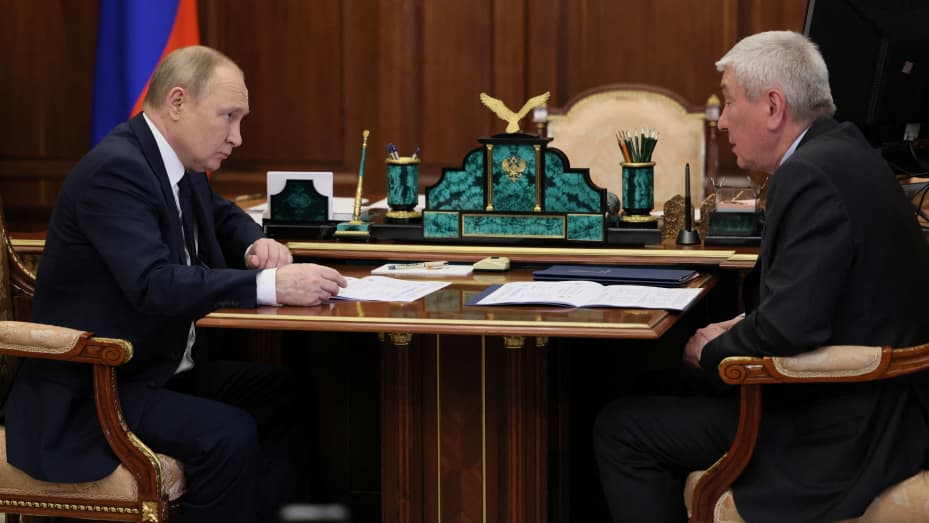
Russia's economy contracted in the second quarter, the first full three months since the country's invasion of Ukraine, and economists are divided over whether it can continue to weather the onslaught of international sanctions.
The Russian economy shrunk by 4% over the second quarter, which was less steep than the 5% expected by analysts. The Central Bank of Russia expects the downturn to get worse before it gets better.
As Moscow scrambles to retool its economy in the face of sanctions imposed by Western powers in response to the war, it comes at a bad time.
Liam Peach, senior emerging markets economist at Capital Economics, said there have been signs of stabilization in many sectors over the past month or two but they don't expect the downturn to bottom out until Q2 2023.
The immediate impact of sanctions was mitigated by the swift actions of the CBR. The ruble became one of the top performing currencies in the world this year as a result of the measures that Stabilized Domestic Markets.
The short-term impact of sanctions has been blunted by fiscal stimuli and interest rate cuts. The central bank slashed Russia's key rate by 150 basis points last month to 8%, marking the fifth consecutive cut since it hiked it from 9.5% to 20% in February.
The central bank took immediate measures to prevent a financial crisis from happening. The impact of Western sanctions seemed to be mitigated by the resilience of Russia's energy sector.
Many economists think that the long-term damage to Russia's economy is more severe because of a flight of business and talent.
Manufacturing output fell 4% quarter-on-quarter and production in import dependent sectors fell more than 10% as a result of sanctions.
Retail sales plummeted after the March inflation shock and consumer confidence collapsed.
The third quarter is expected to be another weak one. The downturns in retail sales and manufacturing have lessened.
The economy faces a number of challenges, including limited access to Western technology and a looming ban on the provision of insurance for shipping Russian oil, which will cause output to fall next year.
Russian GDP is not expected to bottom out for a while.
Six months have passed since global sanctions were imposed on Russia. Over 11,000 international sanctions have been imposed on the country.
The more immediate collapse predicted by some has not come to fruition, despite the long-term structural threats to the Russian economy.
Chris Weafer said that despite the onslaught of sanctions and the predictions of many observers, Russia's economy has not imploded and is in no danger of collapsing.
It is facing 5 to 7 quarters of low single digit decline and a lengthy list of challenges which will keep growth stagnant for many years.
Weafer said in a note Friday that the Russian economy is collapsing.
Small- and medium-sized enterprises make up less than 25% of the Russian state's GDP. Growth is restricted during normal times but not during times of crisis.
Weafer said that the government, companies, and people are used to economic crises and support structures are well developed.
Business confidence plummeted in March and April, but has since bounced back to long-term averages.
Weafer argued that the mass exodus of Western companies from Russia wouldn't be as detrimental to activity as people think.
Most of those leaving are either small companies or local buyers. Only three of the Top 50 foreign-controlled companies have closed down.
A number of people have said they plan to sell their house to a local person. They are staying. The hit to GDP is less than 1% because assets will stay in the country.
A Yale University study published last month looked at high-frequency consumer, trade and shipping data. According to the study, sanctions and an exodus of more than 1000 global companies arecrippling the Russian economy.
Weafer is not sure. There is a lot of skepticism about Russia's resilience and ability, even willingness, to invest in localization, especially given how little has been done in such areas as technology, engineering, and specialist services over the past two decades.
Russia usually addresses such problems when it's left with no other choice and usually only then.